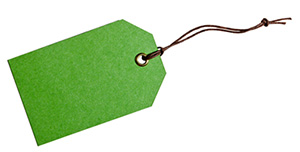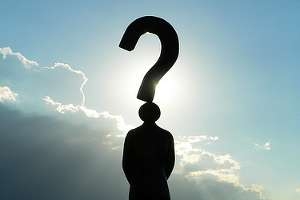Am I Really Bipolar?
Why you should be sceptical if you've been diagnosed with bipolar disorder
 The scary truth behind what's now a common 'illness'
The scary truth behind what's now a common 'illness'"In my time I've been diagnosed as having ADHD, clinical depression, borderline personality disorder and lately I'm told I'm bipolar".
Graham sat in my office reeling off past diagnoses like a keen traveller recounting all the places they'd been.
But he didn't sound keen at all.
"At first I was relieved. I felt like the depression wasn't my fault. That I had a disease. That I'd been born with the wrong chemicals. But looking back it's clear I was depressed for very good reasons. My life wasn't right the way I was living it."
Graham continued:
"Over the years I've been given so many different labels and treated with so many different drugs. It's like I've forgotten who I am beneath all the conditions I'm supposed to have; all the medications I've swallowed."
"Do you believe any of these diagnoses?" I asked.
"I used to, because, well they're the experts. But I've had so many things supposedly wrong with me over the years it's like they've run out of ideas."
For some it can feel like a relief to be told what's "wrong". It was for Graham. But there are dangers to being labelled. Dangers perhaps you need to know about.
The power of diagnoses
It's a big thing to be diagnosed, told you 'have something' - to be persuaded by authority that you can only expect to 'manage', not cure, some condition you didn't know you had.
The problem is that being 'officially' labelled can then make you view all your experiences through the lens of that diagnoses. So what would normally be you reacting with increased stress to a difficult life situation (which is quite normal of course) becomes 'the bi-polar disorder' rearing its diagnosed head.
Another major possible pitfall with being tagged with BPD (or any psychiatric label) is that so-called experts will also become biased in their perception of you. Any signs of individuality or personality may come to be seen as evidence of your bipolar illness.
Self fulfilling prophecies are powerful if you believe yourself to be sick. But so are professional expectations: "He/She is sick therefore everything they say or do is a sign of that sickness." Psychiatrists and doctors can and do get it wrong and the consequences can be really bad.
Being sane in insane places
The 1973 experiment (1) in which psychologically healthy volunteers had a real problem convincing psychiatrists they weren't psychotic and therefore getting released from hospitals proved difficult, showed just how shaky so called 'expert diagnoses' can be. The psychiatrists believed those participating in the experiment were genuinely psychotic and once experts' minds are made up they'll tend to see anything you say and do as 'evidence' that you have what you've been diagnosed with - even, sadly if the diagnosis wasn't correct.
So if psychiatrists can't reliably tell who is psychotic and who isn't, should we be so unquestionably trustful of their diagnoses - especially when we consider the powerful effects of labelling.
Maybe you genuinely do have bipolar disorder. But if you or someone you know has been given this tag I want you to read on and consider the possibility that you don't.
It staggered me to discover the extent to which the diagnoses of BPD has increased since the 1990s. Of course the argument is that it is just being more 'recognized.' But is this true?
Poles Apart
Someone is said to be suffering from bipolar disorder if they regularly swing between deep depression and hypo-manic states. These 'high' states can include psychotic delusions, hearing voices, seeing things that are not there, 'disordered thinking' wild spending of money, following unrealistic goals, believing oneself to be special or on a 'special mission'. One manic man I knew believed himself to be the King of England when he was 'up.'
In my experience of people suffering from this kind of bipolarity the person who is 'high' is often unrecognizable from the person who is 'low'. On the way 'up' the sufferer may experience intense productivity and creativity. It's when the productivity breaks free of all rational constraints problems occur.
One man I knew had, during an extended manic phase, built up a highly successful business whilst building his own home practically single handedly (on two hours sleep a night) whilst writing music and a novel. But his mania reached such a point that his enthusiasm became totally detached from reality. He spent wildly, lost his business, believed he was the son of God and could find no time or inclination to rest. Until the crash came.
After he swung down again he could do nothing. I really mean nothing. He sat in the same chair in the hospital for twelve hours a day before sleeping in his bed. He had no energy, no motivation for anything. The depression was just as complete as the high had been. This is what bipolar used to be.
With true bipolar disorder it really is all or nothing. What is now called bipolar disorder used to be known as 'manic depression.' So how did 'manic depression' come to be re-branded 'bipolar disorder' and why does it matter?
Inventing Illnesses
In the old days before medicine was driven so much by, what are essentially, enormous marketing companies, there would be a pre-existing illness and scientists would work hard to discover a treatment or cure for it.
But now pre-existing drug products are in need of more illnesses to treat. Imagine that. A drug exists but doesn't have a big enough 'market.' One effective way around this business problem is to widen the definition of what is 'ill' so that a bigger market is created and more drugs can be sold (2).
'Manic depressive illness' was and is a rare and serious condition affecting ten people in a million. Let me say that again. Ten people in a million.
This form of the illness is so powerful that sufferers often need to be hospitalized.
The re-branding of manic depression as bipolar disorder was a marketing strategy - not a scientific discovery.
Ten people in a million is a paltry market if you have drugs to sell. But if you can widen the net, so as to gain more 'customers' you can have yourself a blockbusting, best-selling drug. Chances are you know someone who has been diagnosed as BPD or maybe you've been told you have this condition yourself. So just how much of an increase in 'diagnoses' has there been?
From 10 in a million to 1 in 20
From ten in a million before the mid 1990s, bipolar disorder supposedly now affects fifty thousand people in a million or one in twenty. Purveyors of drug products have convinced doctors (those at the front line of prescription) that the normal spectrum of 'mood disorders' (another term made up by marketeers) are really indicative of an 'underlying' case of bipolar disorder, so it's best to catch this genetic illness early so that it isn't allowed to wreck lives. No reasonable person could argue with that. Fortunately, I'm not reasonable.
From a financially unprofitable ten in a million we now have one in twenty who are supposedly bipolar. But be clear, the new bipolarity wasn't discovered by psychologists, it was concocted by marketing people. Obviously, one in twenty people aren't having the dizzying highs and crushing lows I described earlier.
So what treatment can you expect to receive if you are branded with this new condition?
Well drugs obviously. But what drugs?
The unstoppable rise of 'Mood stabilizers'
Well one very popular drug is Dapakote.
Once you start peering into the world of pharmaceutical treatments you start to see what an upside down, back to front Alice-through-the-looking-glass kind of world it really is. Take the so-called 'mood stabilizer' drugs for instance.
As mood stabilizer drugs were developed the apparent prevalence of 'mood disorders' rose sharply. A real coincidence!
Millions more people were labelled (or as the pharmaceutical companies would have it "recognized as having") bipolar disorder.
You or someone you know may have been prescribed the famous 'mood stabilizer' Dapakote. So what do we know about this particular mind-altering product?
Dapakote - what is it good for?
Well it doesn't prevent mood swings that's for sure. Although it's branded as a 'mood stabilizer' there really is no such thing. In fact, the term 'mood stabilizer' was dreamed up by marketing people in the Abbott Laboratories (3) and used to promote their newly concocted soon to be best-seller Dapakote back in the 1990s.
Dapakote was approved by the FDA (US Food & Drug Administration) but only for the manic phase of what used to be called manic depression. And it's important to remember that any sedative will seem to have a benefit for mania as it will impact the hyperactivity.
But why did Abbott dream up the phrase 'mood stabilizer?' (just to re-emphasize; this wasn't initially a psychological term but a marketing one).
Here's why:
Because the FDA ruled that Dapakote wasn't a prophylactic (which means it doesn't prevent mood swings). So if Abbott had claimed their wonder drug could prevent mood swings they would have broken the law; although as it turns out they did (4), so how do they get around this and imply that Dapakote does prevent mood swings? They invent the phrase 'mood stabilizer.'
That's a bit like you trying to sell a car that doesn't work but, to imply that it does work calling it a 'driving-car.' You haven't said it works, you've just given it the name 'driving-car.' That's fair isn't it?
Mood swings in babies?
 Children are now being diagnosed with bipolar
Children are now being diagnosed with bipolarSo the huge pharmaceutical juggernaut that is Abbott Laboratories didn't just market their new drug product; they marketed a whole new condition. Suddenly the world and his dog are now being diagnosed as bipolar. And it gets scarier.
The 'old' manic depression had almost never been diagnosed in people under twenty one but now 'bipolar' - the new, trendy kid on the block is being diagnosed in children, children as young as one have been prescribed anti-psychotics and that, given all the side effects, is not funny and is not right, even in the upside down world we live in.
Of course pregnant woman should never take Dapakote because of multiple risk of birth defects (5) but crazily, some marketeers have even recommended in-vitro scanning for bipolar disorder to see whether foetuses have the condition!
Considering that most people are diagnosed with BPD from filling out questionnaires I'm not sure how unborn babies could be diagnosed (presumably they'd then be 'signed up' onto meds immediately once they were born) (6).
You know, there really should be a name for compulsive diagnostic obsession. CDO anyone?
So if you have been wrongly diagnosed (by however convincing and esteemed an expert) with this once rare illness in its new, re-branded and now hugely financially rewarding guise does that mean there is nothing wrong at all?
How we medicalized being human
Not necessarily. This isn't to say that people branded as bipolar don't have emotional problems. They very likely do. Their emotional difficulties are what perhaps led them to seek help in the first place.
Anxiety, mood fluctuation, loss of motivation are part of the swings, twists and turns of normal life. And sometimes people need help. Being human isn't (or shouldn't be) a psychiatric illness.
Labelling others as bipolar because they sometimes have emotional problems is like saying someone has 'gigantism' or 'dwarfism' because they're either a bit taller or shorter than the average height.
We weren't put here on this earth to serve the monetary needs of pharmaceutical companies.
So if you've been told you are bipolar, are you really?
Diagnoses as brands
Well you might be bipolar in the sense that you may now fit the new criteria. In the same way that if we were told the average IQ level was now 200 (instead of 100) we might all then fit the criteria of being of below average intelligence. If we are told all men should be 7ft tall then perhaps most men can then start a course of growth hormone. Why not? There'd be money in it.
If just about anything can be a symptom of just about anything then being told you have anything might mean just about nothing. Believe it or not that last sentence does make sense.
"But look! You fit the symptoms!" is no good if the 'symptoms' have been engineered to capture a big share of the market.
So if you have been told you are bipolar, the chances are that you aren't - not really. If you don't have a history of the kind of wild mania I was describing, hallucinations, and wildly fluctuating energy, bouncing between body-paralyzing despair then back up to the heady mountain peaks of psychotic delusion, then what you have may be a healthy dose of the human condition. Period. In need of help perhaps, but not necessarily brain altering consumables taken with water once a day. There are other kinds of help that don't damage the brain.
So what's the upshot of all this?
Think Twice
Be sceptical, especially if someone is trying to 'sign you up' and convince you to take medication long term. And while we're at it, when did doctors become drug dispensers above and beyond all else? The 'first do no harm' Hippocratic Oath lies in tatters as millions struggle with the injuries caused by the side effects of drugs that, in some cases, have not been shown to work.
If you and all of us can ride out the current mania for calling every response to life's ebbs and flows 'a condition' then we can all be better off in the long run.
Graham didn't have manic depression but he might have fitted the criteria of someone with a 'mood disorder' - widen the net and you catch more customers.
But he hadn't gotten along with the storm ridden sea of side effects that come pre-packaged with psychotropic products. "When I look back the worst problems in my life seem to have been the injuries I've suffered from all the drugs I've been given."
Together we helped Graham manage stress better, understand what his needs were and how to meet them healthily, how to spot the very first signs his mood might be changing and what to do to stop himself going all too deep into despondency or anxiety. It's so much healthier to exhaust all the natural alternatives before resorting to the consumption of drug products which certainly don't always change the brain in a good way.
Graham did start to feel strong, healthy and was bit by bit able to genuinely deal with his life problems with enough support. He started to feel that there was nothing wrong with him, not essentially. "I'm alright, aren't I?" he announced one day.
"Yes," I winked at him, "but keep that quiet as some might say even thinking that is a symptom of not being." He laughed, but told me he was sad for the pharmaceutical cul-de-sac he'd travelled down for so long.
"Graham," I said. "Normal humans feel sad sometimes."
And we both took a minute to think that through.
Notes:
- See The Rosenhan experiment: 'Sane in Insane places'.
- See: 'Pharmageddon' by David Healey
- pg 35 of 'Pharmageddon' by David Healey
- See http://www.taipeitimes.com/News/editorials/archives/2012/07/11/2003537445
- http://birthdefectresource.com/birth-defect-causes/prescription-drugs/seizure-medications/depakote/
- Pg 152 'Pharmageddon' by David Healey





